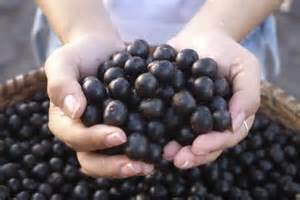What is a superfood?
From kale to acai, the list of supposed
superfoods is growing by the day. But what does the term actually mean?
superfoods is growing by the day. But what does the term actually mean?
By Sami Grover
The term “superfood” is bandied about with surprising regularity
these days. From blueberries to avocado to kale, many common fruits and
vegetables we previously thought of as simply “good for you” are now
being heralded as having extraordinary health-giving properties.
these days. From blueberries to avocado to kale, many common fruits and
vegetables we previously thought of as simply “good for you” are now
being heralded as having extraordinary health-giving properties.
Traditional foods from around the world, like acai from the Amazon or quinoa royal from Bolivia are also being marketed to North American consumers based on their supposedly superior nutritional content.
But what does the term “superfood” really mean, and can we really trust all the claims that are being made?
If you look up the definition of superfood on wikipedia, you’ll find this:
“Superfood is a term used in various contexts. For example, it is
sometimes used to describe food with
high nutrient or phytochemical content that may confer health benefits,
with few properties considered to be negative, such as being high
in saturated fats or in the case of processed products: artificial
ingredients, food additives or contaminants.”
sometimes used to describe food with
high nutrient or phytochemical content that may confer health benefits,
with few properties considered to be negative, such as being high
in saturated fats or in the case of processed products: artificial
ingredients, food additives or contaminants.”
You’ll also find a cautionary note, however, explaining that there
is no legal definition of superfoods, and that many dietitians avoid
using it all together.
is no legal definition of superfoods, and that many dietitians avoid
using it all together.
Dietitians are wary of the word
I asked my wife, Jenni, this one evening after eating some dark,
leafy kale in a beautiful pesto loaded with walnuts, garlic and tomatoes
— all of which feature on one superfood list or another. Jenni is a registered dietitian who contributes nutrition-related articles to this site. She was pretty forthcoming in her opinions:
leafy kale in a beautiful pesto loaded with walnuts, garlic and tomatoes
— all of which feature on one superfood list or another. Jenni is a registered dietitian who contributes nutrition-related articles to this site. She was pretty forthcoming in her opinions:
“Most of the foods usually talked about as ‘superfoods’ are great. I
encourage my clients to eat them all the time. I’d never use the term
‘superfood,’ however, and most of the dietitians I know wouldn’t use it
either. I prefer to talk about a healthy, diverse diet of whole foods.
And that means moving away from processed foods.”
encourage my clients to eat them all the time. I’d never use the term
‘superfood,’ however, and most of the dietitians I know wouldn’t use it
either. I prefer to talk about a healthy, diverse diet of whole foods.
And that means moving away from processed foods.”
Can processed foods be superfoods?
Of course when it comes to our health, the words we use are less important than the food we eat. If lists like 10 superfoods that can improve your life will
help more people get excited about eating blueberries, wild salmon and
sweet potatoes, then they’ll have done the world a favor. The problem,
however, is that the term is also used to market processed foods, some
of which are high in sugars or other unhealthy additives — with little
accountability regarding the health claims being made, at least in the
U.S. market.
help more people get excited about eating blueberries, wild salmon and
sweet potatoes, then they’ll have done the world a favor. The problem,
however, is that the term is also used to market processed foods, some
of which are high in sugars or other unhealthy additives — with little
accountability regarding the health claims being made, at least in the
U.S. market.
Beware of marketing claims
In Europe, things are a little different. Concerned about false or
misleading claims being made by some companies, the European Union has
prohibited the marketing of products as “superfoods” unless they are
accompanied by a specific medical claim supported by credible scientific
research. Ultimately, as was the case with the half truths around whole grains, American consumers need to be savvy about marketing if they want to eat in a healthy way:
misleading claims being made by some companies, the European Union has
prohibited the marketing of products as “superfoods” unless they are
accompanied by a specific medical claim supported by credible scientific
research. Ultimately, as was the case with the half truths around whole grains, American consumers need to be savvy about marketing if they want to eat in a healthy way:
“If you want to eat whole foods, lean toward foods that don’t come
in packaging. An apple, a banana, a fresh filet of salmon — these have a
single ingredient and they are packed with important nutrients. When
you do buy packaged foods, pay attention to the ingredients list and the
nutrition label, not the wild claims being made on the front of the
box.”
in packaging. An apple, a banana, a fresh filet of salmon — these have a
single ingredient and they are packed with important nutrients. When
you do buy packaged foods, pay attention to the ingredients list and the
nutrition label, not the wild claims being made on the front of the
box.”


Recent Comments